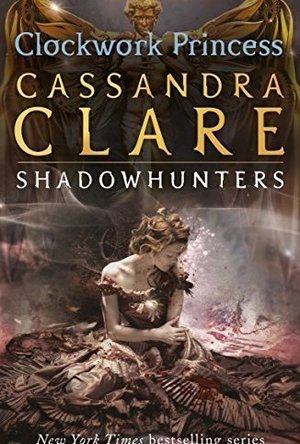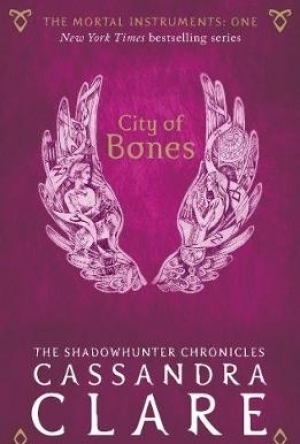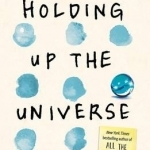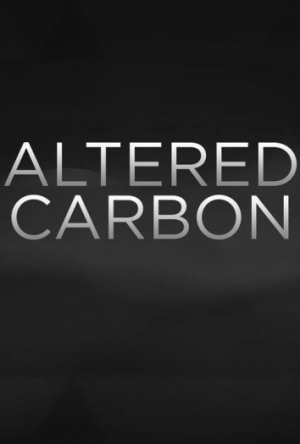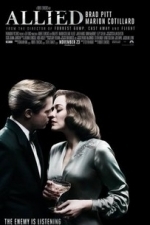Search
Search results
Kyera (8 KP) rated Clockwork Princess (The Infernal Devices, #3) in Books
Jan 31, 2018
Clockwork Princess is the stunning conclusion to Cassandra Clare’s the Infernal Devices trilogy. The pacing of the third book is much brisker than its predecessor and immediately drags you into the plot. There are also significantly more scenes with action in them, which help to break up the scenes that steadily move the story along. As with the previous books, the story is very character-driven and continues to bring further depth to each character’s personality.
Will continues to be my favourite focus of any scene with his witty comments and sense of humour. It was nice to see him play off his sister at times, because normally only Tessa can manage Will. Although they have been apart for many years they still have a wonderfully authentic relationship, like how easily she is able to get under his skin. Will and Jem’s parabatai relationship, as it was in the previous books, is so real that you can easily imagine the love they have for one another, the pain each feels when the other is hurt, and how they would do anything for each other.
It was nice to see the continued development of characters that we’ve grown to love, as well as the new faces that have joined the familiar at the Institute. The number of important characters does not ever feel overwhelming or confusing, as each has been given the time to become established and grow in the world that Cassandra Clare has created. I love each and every one of the characters because they are not only true but integral to the story as a whole.
Despite having read this entire series before and knowing what will happen – it is still so brilliantly written that it elicits myriad emotions throughout. Each character feels real and their lives affect your own. A tear slips down my face as one character experiences unbearable pain, while another comes at the thought of losing a character I’ve grown to love so much. A grin overtakes my face in light of the overwhelmingly happy news. The books that I have grown to love are the ones that speak to you, change you, and will forever stay with you.
Clockwork Princess is quite possibly the best series finale that I have read and certainly the best final book in a trilogy. Despite the book causing me to cry, multiple times, I never felt dissatisfied with the conclusion. The story comes to a climactic end, then Cassandra Clare takes the final chapter to pull everything together and the prologue to make me cry again. I loved re-reading this series so much and hope that you are inspired to read it as well.
Will continues to be my favourite focus of any scene with his witty comments and sense of humour. It was nice to see him play off his sister at times, because normally only Tessa can manage Will. Although they have been apart for many years they still have a wonderfully authentic relationship, like how easily she is able to get under his skin. Will and Jem’s parabatai relationship, as it was in the previous books, is so real that you can easily imagine the love they have for one another, the pain each feels when the other is hurt, and how they would do anything for each other.
It was nice to see the continued development of characters that we’ve grown to love, as well as the new faces that have joined the familiar at the Institute. The number of important characters does not ever feel overwhelming or confusing, as each has been given the time to become established and grow in the world that Cassandra Clare has created. I love each and every one of the characters because they are not only true but integral to the story as a whole.
Despite having read this entire series before and knowing what will happen – it is still so brilliantly written that it elicits myriad emotions throughout. Each character feels real and their lives affect your own. A tear slips down my face as one character experiences unbearable pain, while another comes at the thought of losing a character I’ve grown to love so much. A grin overtakes my face in light of the overwhelmingly happy news. The books that I have grown to love are the ones that speak to you, change you, and will forever stay with you.
Clockwork Princess is quite possibly the best series finale that I have read and certainly the best final book in a trilogy. Despite the book causing me to cry, multiple times, I never felt dissatisfied with the conclusion. The story comes to a climactic end, then Cassandra Clare takes the final chapter to pull everything together and the prologue to make me cry again. I loved re-reading this series so much and hope that you are inspired to read it as well.
Kaysee Hood (83 KP) rated The Mortal Instruments 1: City of Bones in Books
Jan 27, 2018
Characters (2 more)
Diversity
Plot Twists
Some of those Plot Twists (1 more)
Overdone & Prolonged
Another I Wanted to Like
Contains spoilers, click to show
This is more of a overall review for the series, well, up to book 4 as I gave up on trying to get through it all at that point because by then I was tired of the senseless drama.
I wanted to like this series because my friend at the time liked it on top of it sounded interesting. By then the movie was out for it and rumors of the TV show was circling around in the Tumblr community. So, between her and the rest of Booklr I thought why not give it a shot? It couldn't be that bad. Oh how I was wrong.
I shocked a series like this has gained such popularity when really it's good at most. It's not amazing. It's not stunning. It's not special. It's an okay book, with an okay plot, and your basic set of characters.
A girl is average at best, her best friend loves her, and she's being thrown into a world where she's "the one". Oh, did I mention there is a perfect, hot guy with his pals who appear to both be jealous of her? AND THERE'S MORE! The totally hot guy is falling for her...... but they're brother and sister. Oh and they are okay with hooking up despite that. Sort of. It's major conflict. Until you learn they are related and her father was simply messing with them to cause problems in the hopes it would help him have both of them on his side.
As much as Clare offers different types of paranormal things it's all overdone and overplayed. Many times the moments that are suppose to change the whole game in the series are dragged out to the point you're bored to death. Sure, there are gay characters, but they feel more like a "come look at me I'm for your rights even though I'm using your suffering as a way to promote my books as me accepting you" rather than the characters written as simply real. Most of the time that's how secondary characters feel in the series as they are there to be there but not actually meant to be there. Yes, let that idea settle for a second.
I felt like many if Clare had a better team of people proof reading her drafts, pointed out some of these things were not okay (Incest for one), and had people guide her to make the characters more real this could have been a better set of books to me. Maybe it is me still wanting to like it. I'm not sure honestly. I just wish for such a popular series it was worthy of it for everyone.
I wanted to like this series because my friend at the time liked it on top of it sounded interesting. By then the movie was out for it and rumors of the TV show was circling around in the Tumblr community. So, between her and the rest of Booklr I thought why not give it a shot? It couldn't be that bad. Oh how I was wrong.
I shocked a series like this has gained such popularity when really it's good at most. It's not amazing. It's not stunning. It's not special. It's an okay book, with an okay plot, and your basic set of characters.
A girl is average at best, her best friend loves her, and she's being thrown into a world where she's "the one". Oh, did I mention there is a perfect, hot guy with his pals who appear to both be jealous of her? AND THERE'S MORE! The totally hot guy is falling for her...... but they're brother and sister. Oh and they are okay with hooking up despite that. Sort of. It's major conflict. Until you learn they are related and her father was simply messing with them to cause problems in the hopes it would help him have both of them on his side.
As much as Clare offers different types of paranormal things it's all overdone and overplayed. Many times the moments that are suppose to change the whole game in the series are dragged out to the point you're bored to death. Sure, there are gay characters, but they feel more like a "come look at me I'm for your rights even though I'm using your suffering as a way to promote my books as me accepting you" rather than the characters written as simply real. Most of the time that's how secondary characters feel in the series as they are there to be there but not actually meant to be there. Yes, let that idea settle for a second.
I felt like many if Clare had a better team of people proof reading her drafts, pointed out some of these things were not okay (Incest for one), and had people guide her to make the characters more real this could have been a better set of books to me. Maybe it is me still wanting to like it. I'm not sure honestly. I just wish for such a popular series it was worthy of it for everyone.
Kristy H (1252 KP) rated Holding Up the Universe in Books
Feb 13, 2018
Libby Strout has the distinction of being "America's Fattest Teen" -- the girl who was once lifted out of her house with a crane. But no one has ever really taken the time to know Libby, a complicated and kind person who is still struggling with her mom's death and the aftermath of the crane incident. But Libby is stronger than people realize and she's now ready to try high school for the first time. She wants to experience life at a real school: with friends, clubs, love, and more. At school, Libby meets Jack Masselin. Jack is a popular kid struggling with a secret: he doesn't recognize faces. This issue makes high school popularity (and life) surprisingly complicated. Jack's life becomes even more complicated when he gets caught up in an awful high school bullying game that involves Libby. As a result, the two of them wind up in counseling together. Suddenly, they are spending a lot of time together and becoming surprising friends.
This was just a lovely book. I sped through this novel in about a day, because it was just so amazing, but I sort of wish I had savored it more, because it was so good. Libby is an excellent character. There were moments were I was simply amazed by her, and it's easy to say that I fell hard for her. Jack, too, but Libby - Libby is something special. I had read reviews (before the book came out) saying that its coverage of Libby's weight was offensive, but I didn't find it offensive at all. If anything, the book is empowering, and there were passages that made me want to stand up and shout for her. You cannot help but root for Libby.
As with many YA books, it did seem like Jack and Libby were a little mature for high school, but mostly, they felt right on point; if anything, they were each a reflection of how kids have to grow up so much faster now, what with the world being so cruel and all the bullying around them. Besides, each had suffered so much in their own way, even if Jack's life was so much easier on the surface than Libby's. Because I'd read Niven's previous novel, I was constantly waiting for something awful to happen, so there was that. :) I have to say that I enjoyed this one more than [b:All the Bright Places|18460392|All the Bright Places|Jennifer Niven|https://images.gr-assets.com/books/1404331702s/18460392.jpg|26113532], even if that's hearsay for some. It was a well-written and beautiful book and just left me with a good feeling at the end... even if it also left me wishing I could meet Jack and Libby in real life.
This was just a lovely book. I sped through this novel in about a day, because it was just so amazing, but I sort of wish I had savored it more, because it was so good. Libby is an excellent character. There were moments were I was simply amazed by her, and it's easy to say that I fell hard for her. Jack, too, but Libby - Libby is something special. I had read reviews (before the book came out) saying that its coverage of Libby's weight was offensive, but I didn't find it offensive at all. If anything, the book is empowering, and there were passages that made me want to stand up and shout for her. You cannot help but root for Libby.
As with many YA books, it did seem like Jack and Libby were a little mature for high school, but mostly, they felt right on point; if anything, they were each a reflection of how kids have to grow up so much faster now, what with the world being so cruel and all the bullying around them. Besides, each had suffered so much in their own way, even if Jack's life was so much easier on the surface than Libby's. Because I'd read Niven's previous novel, I was constantly waiting for something awful to happen, so there was that. :) I have to say that I enjoyed this one more than [b:All the Bright Places|18460392|All the Bright Places|Jennifer Niven|https://images.gr-assets.com/books/1404331702s/18460392.jpg|26113532], even if that's hearsay for some. It was a well-written and beautiful book and just left me with a good feeling at the end... even if it also left me wishing I could meet Jack and Libby in real life.
Steph Freeman (26 KP) rated Altered Carbon in TV
Feb 19, 2018
Excellent character development (2 more)
Phenomenal special effects
Edge of your seat action throughout the plot line, never felt the story lagging.
Phenomenal Show
Contains spoilers, click to show
In this age of technology I am rarely singularly glued to the television when a show is playing; I'm playing Candy Crush, surfing Etsy, creating new glassware designs... From the moment Takeshi Kovacs is apprehended from the Protectorate until the very last scene of the series this show had me glued to the screen. It combines the "locked room" mystery Agatha Christie made famous with a sci-fi Game of Thrones feel that evokes the Red Rising trilogy sense of Golds vs. Reds.
The lack of regard for anyone below them (literally as well as figuratively) makes it easy to hate the Meths and the decadence that surrounds them. Their wealth allows a god-like immortality, and a lack of respect for life and "real death". Kovacs was detained for crimes against the Protectorate and his stack placed "on ice" for 250 years until the meth Laurens Bancroft pays for his release and a new skin. As Kovacs accepts the offer to find Bancrofts murder, and as he searches for the killer he finds friendship in an AI Edgar Allen Poe (one of the best characters in the whole show), a former military drunk and his wife and daughter, who is damaged emotionally trapped in virtual life, and a police officer. There are also several people after Elias Ryker (a police officer who was a little too curious), which causes issue for Kovacs because that is the skin Bancroft selected when he was taken off ice.
The locked room mystery portion of the season ends in episode 7, but that is far from the end of the action. As we learn more about Kovacs' history his interest in the Envoy mission of recapturing humanity and forcing real death on the world is made more evident, as is his love for Quell. His sister, Rei, did not believe in the mission as much as spending eternity with her big brother. While Kovacs was on ice his sister built a meth empire, acquiring wealth and power, becoming everything Quell and Kovacs fought against. The final moments with his sister, and his decision to find Quell's stack were gripping.
The cinematography, costuming, and CGI in this show are phenomenal, and the attention to detail is obvious. As Netflix is transitioning to big budget productions it's clear they have the right people handling the decisions. I didn't realize this series was also a book trilogy written by Richard Morgan, this series has definitely peaked my interest and I will be reading the books before the next season drops.
The lack of regard for anyone below them (literally as well as figuratively) makes it easy to hate the Meths and the decadence that surrounds them. Their wealth allows a god-like immortality, and a lack of respect for life and "real death". Kovacs was detained for crimes against the Protectorate and his stack placed "on ice" for 250 years until the meth Laurens Bancroft pays for his release and a new skin. As Kovacs accepts the offer to find Bancrofts murder, and as he searches for the killer he finds friendship in an AI Edgar Allen Poe (one of the best characters in the whole show), a former military drunk and his wife and daughter, who is damaged emotionally trapped in virtual life, and a police officer. There are also several people after Elias Ryker (a police officer who was a little too curious), which causes issue for Kovacs because that is the skin Bancroft selected when he was taken off ice.
The locked room mystery portion of the season ends in episode 7, but that is far from the end of the action. As we learn more about Kovacs' history his interest in the Envoy mission of recapturing humanity and forcing real death on the world is made more evident, as is his love for Quell. His sister, Rei, did not believe in the mission as much as spending eternity with her big brother. While Kovacs was on ice his sister built a meth empire, acquiring wealth and power, becoming everything Quell and Kovacs fought against. The final moments with his sister, and his decision to find Quell's stack were gripping.
The cinematography, costuming, and CGI in this show are phenomenal, and the attention to detail is obvious. As Netflix is transitioning to big budget productions it's clear they have the right people handling the decisions. I didn't realize this series was also a book trilogy written by Richard Morgan, this series has definitely peaked my interest and I will be reading the books before the next season drops.
Darren (1599 KP) rated Allied (2016) in Movies
Jun 20, 2019
Story: Allied starts as Canadian Intelligence Officer Max Vatan (Pitt) lands in Morocco to work with French Resistance Fighter Marianna Beausejour (Cotillard) as they pretend to be married as they complete their mission. The two fall in love for real and return to London to get married against the his superior Frank Heslop (Harris) opinion.
After a year of marriage Heslop comes to Max believing Marianna is indeed a spy, this leaves Max questioning, which side of the story to believe and what is the truth.
Thoughts on Allied
Characters – Max Vatan is Canadian intelligence working in Africa, highly skilled he can blend into his environment, but he does fall in love with his undercover wife. When he gets informed she could well be a spy, his life is turned upside down with doubts about what is the truth. Marianna is the French resistance fighter working with the Canadian Max as his fake wife, but she also falls in love with Max and returns to start a family with him. We don’t learn too much apart from that she is a loving wife and mother though.
Performances – Brad Pitt is good for the opening mission, you believe his every decision, but when he becomes the family man, he just doesn’t reach the levels you know he can. Marion Cotillard is good without being her breath-taking best in this role.
Story – The story here follows love and spies during World War II, we see how two people from different sides of the war fall in love and they must decide which side of the war they are supporting. This film doesn’t become as intense as it could be because seeing it from both sides could have heighted the experience and by the end it just doesn’t feel like it reaches the levels it should.
Action/Romance/War – The action during the film is tame with very little being used or looking overly real. The romance doesn’t feel whirlwind like you think it should be either, but the war side comes off strong as we see how the tension between the sides cause most of the issues in the lives.
Settings – The settings look authentic for the time, which does work well for the film.
Scene of the Movie – The truth.
That Moment That Annoyed Me – Just fizzles out in the second half of the film.
Final Thoughts – This is a war romance film that just never reaches the levels it should do, it just seems to go on and becomes one of the average films that you forget by the end.
Overall: Average and disappointing.
https://moviesreview101.com/2019/02/01/abc-film-challenge-oscar-nomination-a-allied-2016/
After a year of marriage Heslop comes to Max believing Marianna is indeed a spy, this leaves Max questioning, which side of the story to believe and what is the truth.
Thoughts on Allied
Characters – Max Vatan is Canadian intelligence working in Africa, highly skilled he can blend into his environment, but he does fall in love with his undercover wife. When he gets informed she could well be a spy, his life is turned upside down with doubts about what is the truth. Marianna is the French resistance fighter working with the Canadian Max as his fake wife, but she also falls in love with Max and returns to start a family with him. We don’t learn too much apart from that she is a loving wife and mother though.
Performances – Brad Pitt is good for the opening mission, you believe his every decision, but when he becomes the family man, he just doesn’t reach the levels you know he can. Marion Cotillard is good without being her breath-taking best in this role.
Story – The story here follows love and spies during World War II, we see how two people from different sides of the war fall in love and they must decide which side of the war they are supporting. This film doesn’t become as intense as it could be because seeing it from both sides could have heighted the experience and by the end it just doesn’t feel like it reaches the levels it should.
Action/Romance/War – The action during the film is tame with very little being used or looking overly real. The romance doesn’t feel whirlwind like you think it should be either, but the war side comes off strong as we see how the tension between the sides cause most of the issues in the lives.
Settings – The settings look authentic for the time, which does work well for the film.
Scene of the Movie – The truth.
That Moment That Annoyed Me – Just fizzles out in the second half of the film.
Final Thoughts – This is a war romance film that just never reaches the levels it should do, it just seems to go on and becomes one of the average films that you forget by the end.
Overall: Average and disappointing.
https://moviesreview101.com/2019/02/01/abc-film-challenge-oscar-nomination-a-allied-2016/

Star Chart VR
Education and Reference
App
The ultimate virtual reality experience: A VR Planetarium! Star Chart VR lets you explore the solar...
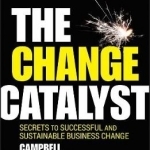
The Change Catalyst: Successfully Instigating Sustainable Change: Secrets to Successful and Sustainable Business Change
Book
The essential companion for delivering successful and sustainable change. 'The Change Catalyst is...
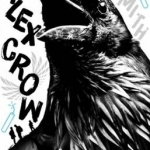
The Alex Crow
Book
From the critically acclaimed author of cult teen novel Grasshopper Jungle, Andrew Smith, comes a...
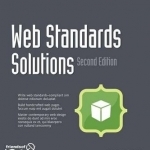
Web Standards Solutions: The Markup and Style Handbook
Book
Welcome to the expanded second edition of Dan Cederholm's best-selling Web Standards Solutions. Web...
